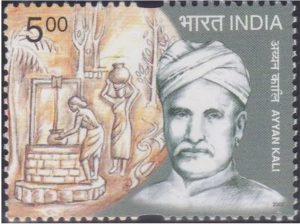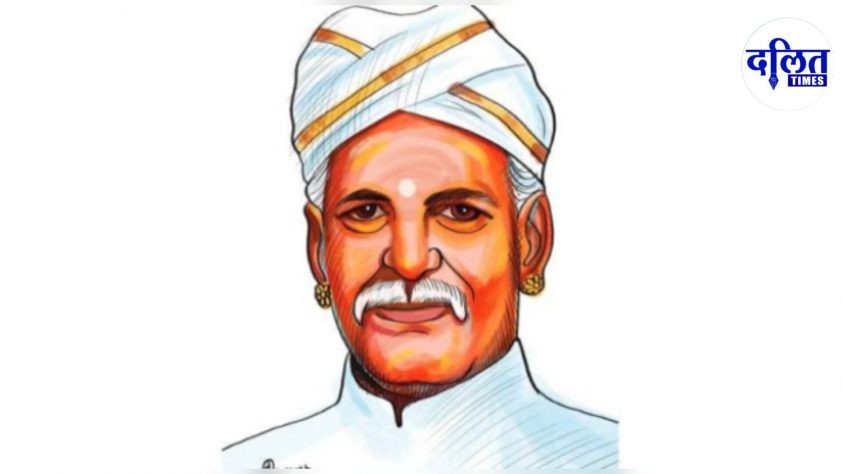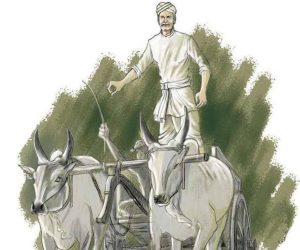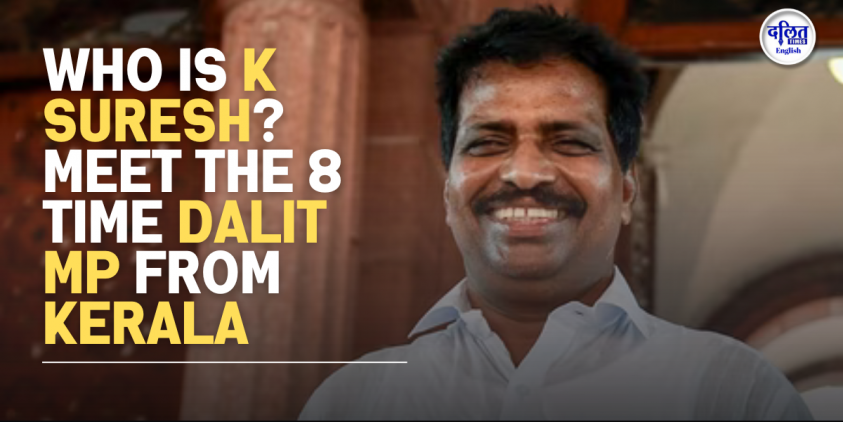Ayyankali, the fearless Dalit warrior , shattered caste barriers and fought tirelessly for the rights of the oppressed. His bold defiance against social injustice and unwavering commitment to
education and equality sparked a revolution, leaving a legacy that continues to inspire the fight
for social justice today.
Ayyankali, a towering figure in the history of social reform in India, is celebrated today on his birth anniversary. Born in 1863 in the small village of Venganoor, Kerala, Ayyankali’s life story is a remarkable tale of resilience, courage, and unwavering dedication to social justice. His
contributions to the upliftment of the Dalit community and his tireless fight against the oppressive caste system have made him a revered icon, not just in Kerala but across the country.
If we talk about Ayyankali’s early life, he was born into the Pulayar community, one of the most marginalized and oppressed Dalit communities in Kerala. During his time, the rigid caste system
imposed severe restrictions on Dalits, who were denied access to education, public spaces, and basic human rights. Ayyankali, despite these oppressive circumstances, displayed a natural
leadership quality from a young age. He was deeply disturbed by the injustices faced by his community and vowed to bring about change.
Also read : Rau Incident – Basement becomes a Death Trap for IAS Aspirants
One of Ayyankali’s most significant contributions was his advocacy for the education of Dalit children. In a society where education was a privilege reserved only for the upper castes,
Ayyankali understood that education was the key to empowerment and social mobility. In 1904, he established a school for Dalit children, marking the beginning of a relentless battle against caste-based discrimination in education. His efforts were met with fierce resistance, including violence and threats from the upper castes, but Ayyankali persisted. His advocacy led to the Travancore government issuing orders to allow Dalit children into government schools, a
landmark victory in the fight against caste-based oppression.
Ayyankali’s activism extended beyond education. He took bold steps to challenge the social norms that enforced untouchability and restricted the freedom of Dalits. In 1893, he organized
the famous ‘Villuvandi’ (bullock cart) protest, where he rode a bullock cart through public roads in defiance of the caste restrictions that barred Dalits from using such roads. This act of defiance was a direct challenge to the social order and highlighted the discriminatory practices prevalent in society. The protest sparked widespread debate and highlighted the need for social reform.
Also read : Kerala High Court upheld the ban on child marriages
As a community leader, Ayyankali also focused on the rights of Dalit agricultural laborers. The Dalits, who formed the backbone of the agricultural workforce, were often subjected to exploitation and inhumane working conditions by upper-caste landlords. Ayyankali organized
strikes and protests demanding fair wages, better working conditions, and the right to form unions. His leadership in this area laid the groundwork for labor rights movements in Kerala,
earning him recognition as a champion of the working class.
Recognizing the need for organized advocacy, Ayyankali founded the Sadhu Jana Paripalana Sangham (Association for the Protection of the Poor) in 1907. The organization served as a platform for the Dalit community to voice their grievances and demand their rights. Ayyankali’s leadership in the Sangham played a pivotal role in bringing the issues of the Dalit community to
the forefront of public discourse.
Also read : India’s Top Institutes Witness High Dropout Rate Among Subaltern Classes
In 1912, Ayyankali’s influence grew further when he became a member of the Sree Moolam Praja Sabha, the legislative council of the princely state of Travancore. His presence in the Sabha marked a significant moment in history, as it was one of the first instances of a Dalit representative being part of a legislative body. Through his role, Ayyankali advocated for more inclusive policies and reforms, furthering the cause of social justice.

Ayyankali passed away on June 18, 1941, but his legacy continues to inspire generations. His life’s work laid the foundation for the social and political awakening of the Dalit community in
Kerala and across India. Ayyankali’s courage to stand up against oppression, his advocacy for education, and his fight for the rights of the marginalized have earned him a revered place in history. His contributions have been recognized by the Government of India, which honored him with a postal stamp in 2002.
On this day, Ayyankali’s birth anniversary, it is essential to reflect on the principles he stood for and the values he championed. His fight for equality, social justice, and human dignity resonates even today as societies around the world continue to battle various forms of discrimination and
inequality.
Also read : Two Minor Girls in kindergartens were molested and sexually abused by the staff of the School is Shocking
Commemorating Ayyankali is not just about honoring a great leader; it is a call to action to continue his work towards a just and equitable society. His life reminds us that change is possible, even in the face of seemingly insurmountable odds, and that each individual has the
power to make a difference. Ayyankali’s legacy is a testament to the enduring spirit of resistance against injustice. As we
celebrate his birth anniversary, let us pledge to carry forward his vision of a society where every
individual, regardless of caste, creed, or background, is treated with respect and dignity




